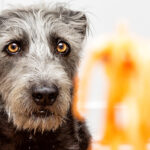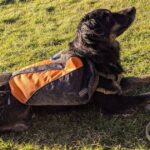Will Raccoons Attack Dogs
Raccoons vs Dogs: Will They Attack Each Other?
When it comes to the wild animals that may threaten our beloved pets, raccoons are often mentioned as a potential predator. Raccoons are known for their cunning and adaptability, as well as their cute appearance and mischievous behavior. However, can raccoons actually attack dogs? In this article, we will explore the facts and myths surrounding this topic and provide some tips on how to keep your dog safe from raccoons.
Introduction: The Curious Case of Raccoon-Dog Encounters
Have you ever seen a raccoon in your backyard or neighborhood? Did you notice your dog’s reaction to it? Raccoons are common in many parts of North America, especially in urban and suburban areas where they can find food and shelter easily. They are omnivores, meaning they eat both plant and animal matter, including fruits, nuts, insects, rodents, birds, eggs, fish, and even garbage. Raccoons are also nocturnal animals, which means they are more active at night than during the day.
Dogs, on the other hand, are domesticated mammals that have been bred for various purposes such as hunting, guarding, herding, companionship, and service. Dogs come in different breeds, sizes, shapes, and temperaments. Some dogs are more aggressive or territorial than others; some dogs are more curious or playful than others. Dogs also have different senses than humans or raccoons; they can hear better and smell better but see worse in low light conditions.
So what happens when a dog meets a raccoon? Do they get along or fight? Do raccoons pose a threat to dogs or vice versa? Let’s find out.
Body: The Truth About Raccoon Attacks on Dogs
First of all, it is important to note that raccoons are not inherently aggressive towards dogs or humans. Raccoons are generally shy and avoid confrontations if possible. However, raccoons can become defensive or territorial if they feel threatened or cornered. In such cases, raccoons may hiss, growl, puff up their fur, stand on their hind legs, and even scratch or bite if necessary.
Therefore, the likelihood of a raccoon attacking a dog depends on many factors such as:
– The size and breed of the dog: A small dog may be perceived as prey by a raccoon, while a large dog may be seen as a rival or threat.
– The location and time of the encounter: A dog that approaches a raccoon’s den or food source may trigger a defensive reaction from the raccoon. A dog that barks or chases a raccoon at night may startle it and cause it to retaliate.
– The personality and training of the dog: A well-behaved and obedient dog is less likely to provoke a raccoon than an aggressive or poorly socialized dog. A dog that has been trained to avoid wild animals or listen to its owner’s commands can also reduce the risk of an attack.
Based on these factors, it is difficult to generalize whether raccoons will attack dogs or not. However, some statistics and anecdotes suggest that raccoon attacks on dogs are not uncommon but not very common either. According to one study conducted in Ontario, Canada, between 2002 and 2016, there were 20 reported cases of raccoon attacks on dogs, out of which 9 resulted in serious injuries and 1 in death. Most of the attacks occurred during the months of May to August, when raccoons have babies to protect and food is scarce.
Another study based on veterinary records from California found that raccoons were responsible for only 1% of all reported injuries to dogs caused by wildlife. Coyotes, snakes, and even domestic dogs were more likely to harm dogs than raccoons. However, the same study also noted that not all raccoon attacks on dogs were reported or treated by veterinarians, so the actual number of incidents could be higher.
In addition to these scientific studies, there are many stories and videos online that show or describe raccoon-dog encounters, some of which are funny, cute, or scary. Here are some examples:
– A video of a small dog chasing a raccoon up a tree and barking at it while the raccoon hisses back.
– A story of a large dog that cornered a raccoon in its backyard and got bitten on the nose before the owner intervened.
– An anecdote of a dog that was attacked by a group of raccoons while walking off-leash in the woods and had to be rescued by its owner with a stick.
– A meme of a raccoon wearing a mask and holding a knife with the caption “I heard there’s a dog around here who’s been talking shit about me.”
Conclusion: How to Prevent Raccoon Attacks on Dogs
Now that we have explored the topic of whether raccoons will attack dogs or not, you may wonder what you can do to protect your furry friend from such an encounter. Here are some tips:
– Keep your dog leashed or supervised when outside: This will reduce the chances of your dog wandering into areas where raccoons may live or feed. It will also give you more control over your dog’s behavior if it encounters a raccoon.
– Secure your trash cans and pet food bowls: Raccoons are attracted to garbage and leftovers, so make sure you don’t leave any food or smellable items outside that may attract them. Use tight lids or heavy containers to prevent raccoons from opening them.
– Install motion-sensing lights or sprinklers: Raccoons are afraid of sudden movements or noises, so using devices that emit light or water when they detect motion can scare them away from your property.
– Remove potential hiding places or entry points: Raccoons can hide under decks, sheds, or bushes, or climb onto roofs or fences to access your property. Seal any gaps or holes in your house or yard that may allow raccoons to enter or exit.
– Train your dog to avoid wild animals: This may involve teaching your dog basic commands such as “leave it” or “come” and rewarding it for obeying them. You can also use positive reinforcement techniques to reinforce desirable behavior and discourage undesirable behavior.
Remember, prevention is better than cure. While raccoon attacks on dogs may not be very common, they do happen and can result in serious injuries or infections. Therefore, it is important to be aware of the risks and take appropriate measures to ensure the safety of your pet and yourself. Happy coexisting!



